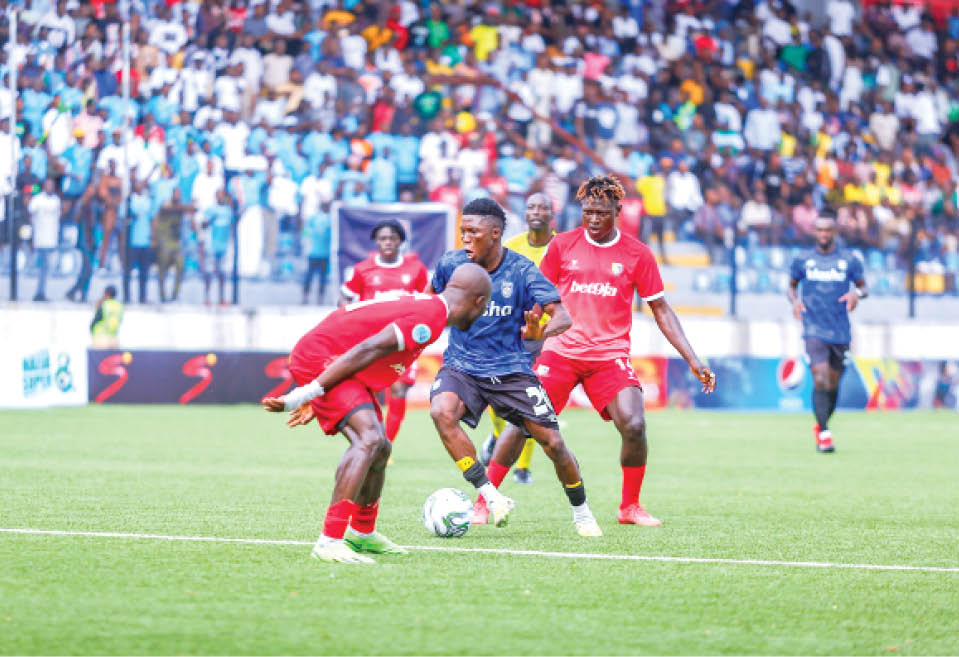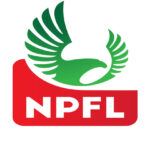After several days of exciting and breathtaking football actions, the inaugural edition of the Naija Super 8 tournament will end today with a potentially explosive all-South-West finals to be contested by Remo Stars and the rave of the moment, Sporting FC Lagos. Indeed, there are many lessons to be learned from the money-spinning competition.
Before we delve into the useful lessons, it is imperative for us to know a little about the competition that is right now on the lips of almost every football stakeholder in Nigeria.
The Super 8 is a fan-based pre-season football tournament that offers millions of Naira as incentives to participating clubs. In fact, when the organisers unveiled the competition, it sounded too good to be true. The scepticism was no doubt caused by Nigerian football administrators’ inability to successfully organize competitions of such magnitude.
Despite the cynicism, the organisers went to work as fans across the country were asked to vote for their preferred clubs to compete in the tournament. In the end, fans in the North-Central picked Lobi Stars and City FC Abuja, those in the North-East settled for Gombe United and Yobe Desert Stars, Kano Pillars and Katsina United emerged from the North-West, Enyimba and Heartland received the nod of fans from the South-East, Remo Stars and 3SC made it from the South-West while Bendel Insurance and Rivers United from South-South completed the list of 12 clubs that represented the six-geo-political zones in the Championship playoff which was held at the Eket Township Stadium in Akwa Ibom State.
- Why organisations should priortise mental health in workplaces – Pension operators
- Emefiele: Ex-NBA president, activists urge SSS to comply with court orders
At the Playoff, each of the 12 clubs was supported with N3m appearance fee and accommodation. Lobi Stars, Remo Stars, Yobe Desert Stars, Rivers United, Enyimba and Katsina United qualified from the zonal playoff and were joined by two wildcards, Akwa United and newly promoted Sporting of Lagos, for the Super 8 tournament which ends in a few hours time at the Mobolaji Johnson Arena in Lagos.
Now back to the lessons. The first is that Flykite Productions who have organised the tournament in collaboration with other sponsors have demonstrated that football is better sponsored and managed by business-oriented individuals. The organisers have shown the capacity to administer even the Nigerian league.
Right from day one, it has been a near-perfect organization with no hiccups to threaten the success of the competition. Before now, many of us wondered how an ordinary pre-season tournament would be shown live on almighty Supersport but from the first playoff match in Eket to the final match to be played today in Lagos, the matches have been beamed live to a global audience.
In addition, the organisers also promised to splash millions on the participating clubs and it’s happening. None of the eight clubs is earning less than N9m because they are paid N3m for each of the three group matches. And the winner at the end of proceedings today will take home the N25m cash prize.
Again, the high quality of matches at the Naija Super 8 is another lesson. Before now, the consistent failure of Nigerian clubs in continental competitions made many people begin to doubt the quality of the Nigerian league. However, almost all the matches in the tournament have shown clearly that talents still abound in the domestic league. Flykite and partners have proved that poor organization is making nonsense of the NPFL and other leagues in Nigeria. In fact, the match between Katsina United and Enyimba had all the trappings of a World Cup match.
Nigerian referees at the tournament too also gave a good account of themselves. One is not saying there were no wrong or questionable decisions, but dubious calls weren’t as rampant as is usually seen in the NPFL. Each referee performed his best because the matches were on live television. Furthermore, they were well-motivated and secure. The Naija Super 8 has indeed laundered the bad image of Nigerian referees. It is hoped that the IMC and NNL will learn to provide them with the same enabling environment to operate in the coming season.
Earlier on, I made mention of the high quality of football artistry displayed by the players but that wouldn’t have been possible without a good playing surface. The organisers of the competition chose one of the best stadiums in the country to showcase Nigerian football. The Mobolaji Johnson sports arena indeed provided the right atmosphere for football. It is hoped that the IMC will emulate the organisers of the Super 8 competition by ensuring that no ‘horse racing pitch’ or dilapidated facilities host NPFL matches next season.
Undoubtedly, the most important lesson that has come out of the competition is that the future of Nigerian football is the privately owned clubs. Some of us have continued to advocate for complete disengagement of state governments from sponsorship of football clubs and even as only a few have cared to listen, the tournament has once again amplified our positions to such a level that even the deaf can now hear.
It is interesting that the two teams in today’s finals are privately owned clubs. They are founded and sponsored by young Nigerians who have travelled round the world and have seen how modern football clubs are managed. Remo Stars and Sporting FC which was established two years ago are among the few clubs in Nigeria that are truly professional. For instance, Remo Stars have the best privately owned football facilities in the country. Whoever visits their stadium in Ikenne leaves to live with fond memories of the world-class edifice.
It is, therefore, no surprise that the two clubs have beaten all government clubs to set up today’s finals. In the semi-final matches, Remo Stars sacked Lobi Stars while Sporting edged out Akwa United. The big lesson is that state governments should stop wasting taxpayers’ money on the sponsorship of football clubs. They should restrict themselves to providing infrastructure for football development.
Sadly, when the 2023/2024 NPFL season kicks off hopefully in August, only two private clubs would be involved. The rest are the government-owned clubs that always complain of inadequate funding. It’s not possible to hear Manchester United blaming the British government for its inability to pay players’ salaries but it is a common story in Nigerian football.
Let me conclude by celebrating the brains behind the Naija Super 8 and all the clubs that have participated and advertised Nigerian football. Coming shortly after the just concluded NPFL season, the competition no doubt took a toll on the players, but they did their best to prove to all that the domestic league is not bereft of talents. I hope we have learnt useful lessons from the glamorous Super 8 tournament.

 Join Daily Trust WhatsApp Community For Quick Access To News and Happenings Around You.
Join Daily Trust WhatsApp Community For Quick Access To News and Happenings Around You.


